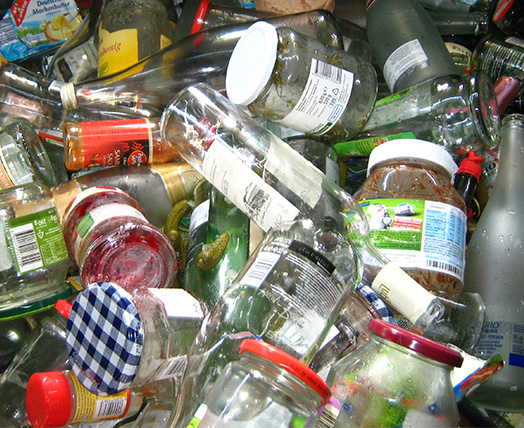
Waste Worth Knowing: CUHK Launches Trial for Waste Charging and Waste Auditing
With landfills close to full capacity, the Hong Kong government is planning to finalize arrangements for quantity-based charging for municipal solid waste (MSW) disposal to enforce the ‘polluter-pays principle’. Once implemented, MSW charging will directly impact millions of households and a wide variety of commercial, industrial institutions, public sectors and non-profit making organizations. Several pilot schemes involving housing estates and villages have already been conducted. In anticipation of the new policy, CUHK, too, has initialized its own ‘waste charging and waste auditing’ pilot scheme in January.
The first stage of the Trial for Waste Charging and Auditing is spearheaded by the Estates Management Office (EMO) with the support of Secure Information Disposal Services Ltd (SSID), CUHK’s waste management contractor. Trash bags of a standardized size and waste collection bins from different participating units are tracked daily using stickers with QR codes and radio frequency identification (RFID) chips, respectively. Two to three times per fiscal year, audits will be performed in which around a hundred bags of trash (waste collected in recycling bins are exempted), drawn from various participating units, will have their contents weighed, analyzed and recorded to serve as a sample of the units’s waste composition.

While the participating units won’t actually be charged for waste disposal, experience gained from the Trial can help the University smooth out any kinks in the waste tracking and quantification system before MSW charging officially commences in Hong Kong.

Mr. Edmond Lam, Director of Estates Management, foresees numerous benefits for CUHK from the pilot scheme: ‘The Trial can get our members familiarized with the system and answer some questions crucial to smooth operation, like: whether charging waste disposal by number of bags or by weight is more practical for CUHK, and whether all wastes can be successfully tracked back to their offices of origin; in the long run, data obtained on the quantity and composition of waste from participating units will allow us to gain a better understanding of user behaviour, and enable CUHK to formulate more effective waste reduction policies.’
For this Trial, SSID will make use of an innovative tracking system. Mr. Harold Yip, Executive Director of SSID, shared his thought: ‘We have developed one of the territory’s first cloud-based tracking platform accessible via smart phones for waste management. It can tell you, in real-time, where and how much waste has been collected via an online platform. With new technologies linking trash bags and bins back to their origins, it is now easier than ever to gauge our clients’ recycling performance and acknowledge best practices.’
Currently, the Trial involves two colleges (Shaw College and Lee Woo Sing College), two academic units (School of Life Sciences and the Department of Geography and Resource Management), and two administrative units (Estates Management Office and Business Office). It is hoped that additional funding will be obtained at a later stage to scale up the programme, allowing more units to participate and more frequent audits.
Lee Woo Sing College, one of the pioneer units, was keen to join the Trial as it aligns with their own green vision: ‘Sustainability is one of our College’s core values. We’ve pioneered other green projects before. This Trial is a good cause so we’ll support it fully,’ said Ms. Alice Law, College Secretary. ‘Aside from helping the University prepare for mandatory MSW charging, we can come up with better programmes to reduce waste at source once we have more data, like what kind of recyclables tend to show up in our waste.’
In this age, the mentality of ‘out of sight, out of mind’ with regards to waste is no longer acceptable. Getting to know our waste, on the other hand, can in fact be rewarding and (thanks to technological innovations) less of a mess than we imagined!



